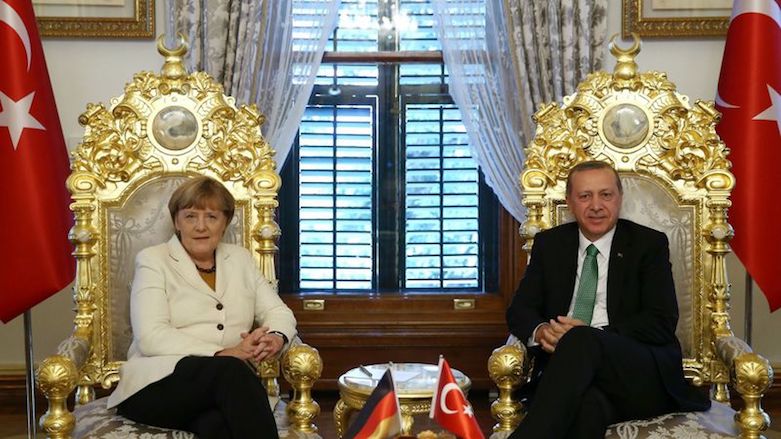US experts call Turkey's jailing of Western nationals 'hostage diplomacy'

ERBIL (Kurdistan 24) – US-based experts on Thursday warned that Turkey’s President Recep Tayyip Erdogan was holding some Western nationals in jail to use them as “bargaining chips” against their countries in what they described as “hostage diplomacy.”
A 36-page report by the Washington DC-based think-tank, Foundation for Defense of Democracies (FDD), said over 30 European and Americans spent time imprisoned in Turkey following the coup attempt by a clique within the military, in mid-2016.
At least nine of them, two US citizens, remained in custody “as of June 1, 2018,” noted the report, co-authored by FDD fellows Eric Edelman, a former US ambassador to Turkey, and Aykan Erdemir, a former opposition lawmaker at the Turkish parliament.
“The [Turkish] government uses the prisoners as pawns to extract concessions in bilateral relations with the US and EU countries,” they said.
Ankara’s jailing of foreigners on political grounds with accusations ranging from espionage and propaganda to membership in outlawed groups such as the Kurdistan Workers’ Party (PKK) and Turkish-Islamic Gulen movement has added to the deterioration of ties with its NATO allies.
“Not only did authorities begin to target Western human rights advocates – an attempt to intimidate Turkish dissidents who collaborate with foreign colleagues – but Turkey’s pro-government media also launched a slander campaign against Europeans and Americans, accusing them of supporting terrorism and conspiring coups to make them into targets for the mass crackdown,” FDD said.
It cited the cases of two Americans, pastor Andrew Brunson and Serkan Golge, a Turkish-American physicist who worked for NASA’s Mars program until the Turkish police arrested him in 2016 while on vacation in Turkey as notable examples of hostages.
Brunson’s continued detention for alleged membership in the PKK and Gulen Movement has enraged the Trump administration and the US Congress.
President Donald Trump repeatedly urged the pastor’s liberty as the Congress threatens sanctions on Erdogan’s Turkey that could affect their military trade, including the sale of F-35 warplanes to Ankara.
The Turkish President himself implied Brunson’s freedom by exchanging him with his foe-turned-ally Fethullah Gulen, who he holds responsible for mounting the failed coup and forcefully demands from the US his extradition.
“‘Give us the pastor back,’ they say. You have one pastor as well. Give him [Gulen] to us,” Erdogan said in September 2017. “Then, we will try him [Brunson] and give him to you.”
Earlier this year, Czech media reported that Ankara had offered Prague to exchange two of its citizens imprisoned in Turkey with Salih Muslim, the former Co-leader of a US-allied Syrian Kurdish party who Czech authorities detained for days at the behest of the Erdogan administration.
Germany’s public-funded DW exposed a similar scenario regarding the case of Deniz Yucel who Erdogan had on live TV vowed to keep in jail as long as he was president.
Yucel was released in February following a series of meetings between top German and Turkish officials, including both countries’ foreign and prime ministers.
Washington and various European countries have so far dealt with “Erdogan’s hostage diplomacy” at the bilateral level, using discreet talks with Ankara to plead for the release of their nationals and employees, FDD recorded.
“The Turkish president has chosen to bargain with each country according to his calendar, using his hostages as leverage to gain concessions. The US and the EU need a coherent, transatlantic strategy to counter Erdogan’s hostage diplomacy, not only to ensure the release of Western nationals in prison, but also to prevent other incidents in the future.”
Editing by Karzan Sulaivany
